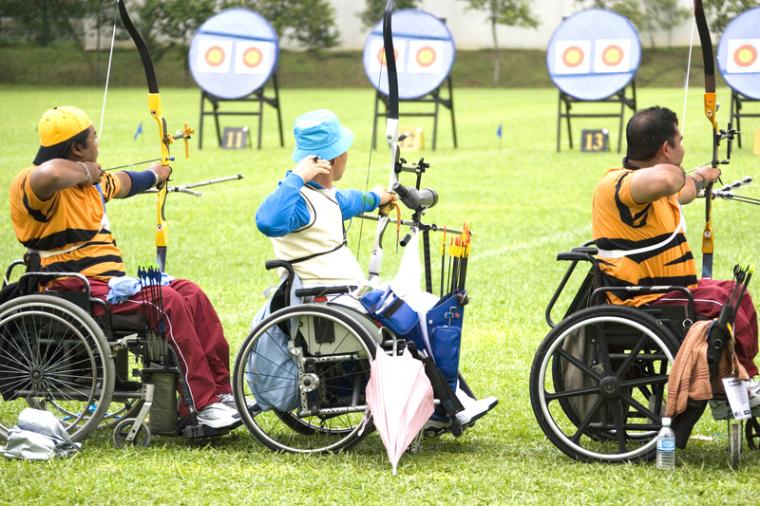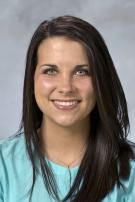

The Endeavor Games for athletes with physical disabilities was first held in 2000 on the campus of the University of Central Oklahoma in Edmond, Oklahoma. That first event offered seven sport competitions to 91 athletes from seven states.
Fast forward to the present day: The Games offer eleven sport competitions, nine sport clinics and three special events to 250 athletes from 30 states, and the event is now regarded as one of the nation’s largest competitions of its kind. While this doesn’t make us experts, our team has learned many valuable lessons through our event’s growth and our 20+ years of experience in adaptive sport competition planning.
One lesson we’ve learned is that we have to be willing to adapt and change as the industry, technology and the world changes. Of course, much has progressed since the inception of the Endeavor Games in 2000, so we have had to as well. We’ve shifted from a paper, mail-in registration form to an entirely online model. We’ve switched to new online registration programs and track meet management systems.
We’ve assessed better ways to communicate with our athletes and reach new ones. Just as the world has, we’ve had to adjust to the challenges brought on by the COVID-19 pandemic. Each of these examples had their share of trials and tribulations, but were worth it in the end because they made our organization better able to serve our athletes. The only thing we can know for certain is that everything changes, and longevity depends, at least in part, on the willingness to adapt to those changes.
A second lesson we’ve learned is the value of facilitating opportunities for creating community amongst event participants. First and foremost, we organize a sport competition for athletes with physical disabilities. By the nature of sport, and through the clinics and competitions we offer, connection is going to happen organically. Beyond that though, it’s important to offer spaces within the event where the primary purpose is for our athletes to build relationships with each other.
As previously stated, we offer three special events over the course of our four-day event: the Welcome Party, Saturday lunch at the track, and the Athlete Banquet. Each year in our wrap-up survey, our athletes express to us how some of their favorite moments from the Endeavor Games occurred at these three special events.
Our athletes who are military veterans tell us about the feelings of camaraderie they’ve had restored from being able to spend time with other veterans. A young athlete from Kansas told us that her favorite part of attending the Welcome Party was “feeling like [she] belongs.” Parents of athletes thank us for giving them a time to talk with other parents of children with disabilities. Are these special events the main reason our participants attend the Endeavor Games? Definitely not, but we see tremendous value in enhancing their experience with us by giving them opportunities to get to know our staff and each other.
A third lesson we’ve learned is that access to sport/competitions for individuals with physical disabilities can be limited. Some states do allow individuals with disabilities to compete in their own category during school sanctioned sports like track and field and swimming, and some sport national governing bodies host competitions that allow for people with disabilities to compete.
As far as sport competitions that are specific to and exclusively for people with physical disabilities, there is only a small network of these events spread across the United States. In order for the greatest number of people to be able to access your event and services, it’s important to consider how you can remove barriers to participation where possible.
For example, the only requirement to attend the Endeavor Games is that our participants have a physical impairment of any kind. We have athletes of all ages — in 2021 our youngest was five years old, and our oldest was 82. We have athletes who served in the United States military ranging from the Vietnam war to some currently active duty. We have athletes who participate for health, or recreation, or with dreams of being a Paralympian, or anywhere in between.
Even after eliminating barriers like these, though, the issue of proximity to events still remains. Ultimately, we need more passionate people starting events in their communities so that there are more opportunities for people with disabilities.
Along those same lines, another lesson we’ve learned is that cost shouldn’t be a deterrent to participating. Sport equipment for athletes with physical disabilities is an enormous investment — often in the thousands of dollars per running blade, sport wheelchair, handcycle, etc. On top of paying for this specific, fitted equipment, athletes are also paying for their travel and lodging for competitions all over the country. On top of that, many of them are also having to account for additional medical expenses like surgeries and their day-to-day prostheses or assistive devices.
All of these expenses add up quickly. In turn, we keep our price of registration at a low, flat rate so as not to further inconvenience our athletes. Additionally, when we have the ability to do so, we offer scholarships to cover the cost of lodging while athletes attend the Games. Beyond that, we do our best to connect athletes to organizations that can provide grants and financial assistance for travel, equipment and coaching. These things can help alleviate some of the financial burden for participants and prevent monetary constraints from keeping them from participating.
Last, but certainly not least, we’ve learned that local support is crucial. The Endeavor Games has been fortunate to have the backing of the community of Edmond, Oklahoma for 20+ years. The University of Central Oklahoma embraced us and has been our headquarters for the majority of that time. More than half of our sport clinics and competitions are held on campus. The rest are held in different locations around Edmond, including one of our YMCA locations, a local middle school and a local high school. Local businesses contribute financially to our event, and aid in our efforts to keep costs down for our athletes.
The Endeavor Games also requires a number of volunteers to make everything happen. We get volunteers from many of Edmond’s leadership and service organizations and various city entities — even the mayor and members of the city council. Our partnerships with the City of Edmond and Visit Edmond have been invaluable for our event and our athletes. Connecting with the community you’re in and getting buy-in from the different facets in it will help sustain your mission. Build relationships with those who can and will advocate for your event and your participants at a local level.
Even after all these years, we certainly aren’t experts — we’re perpetual learners. We simply use our experiences, both good and bad, to teach us. Some of our key takeaways here may not be applicable to all types of events, but we hope that our passion for what we do resonates with everyone. Ultimately, our mission is to provide opportunities for individuals with physical disabilities to compete in sport. As long as we keep that at the forefront, there will be plenty more years of the Endeavor Games for us to learn from. SDM

